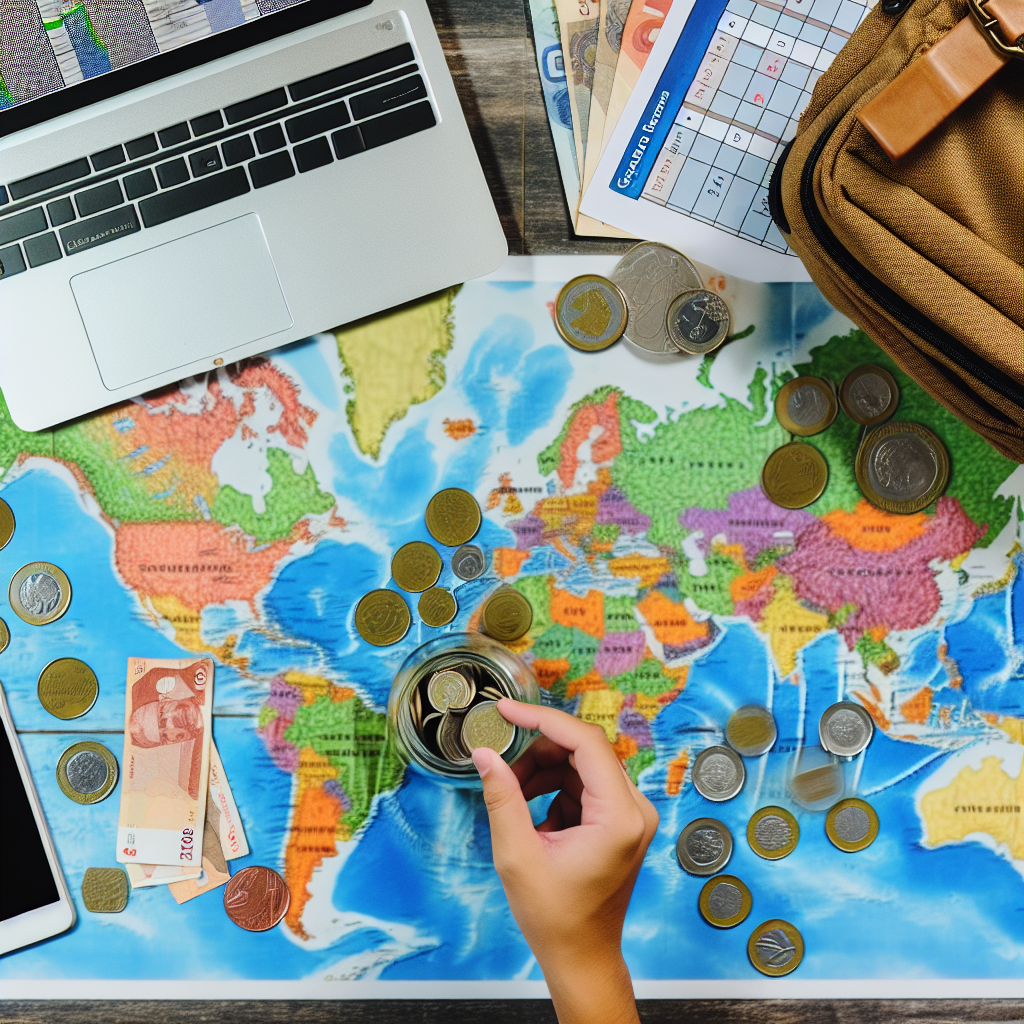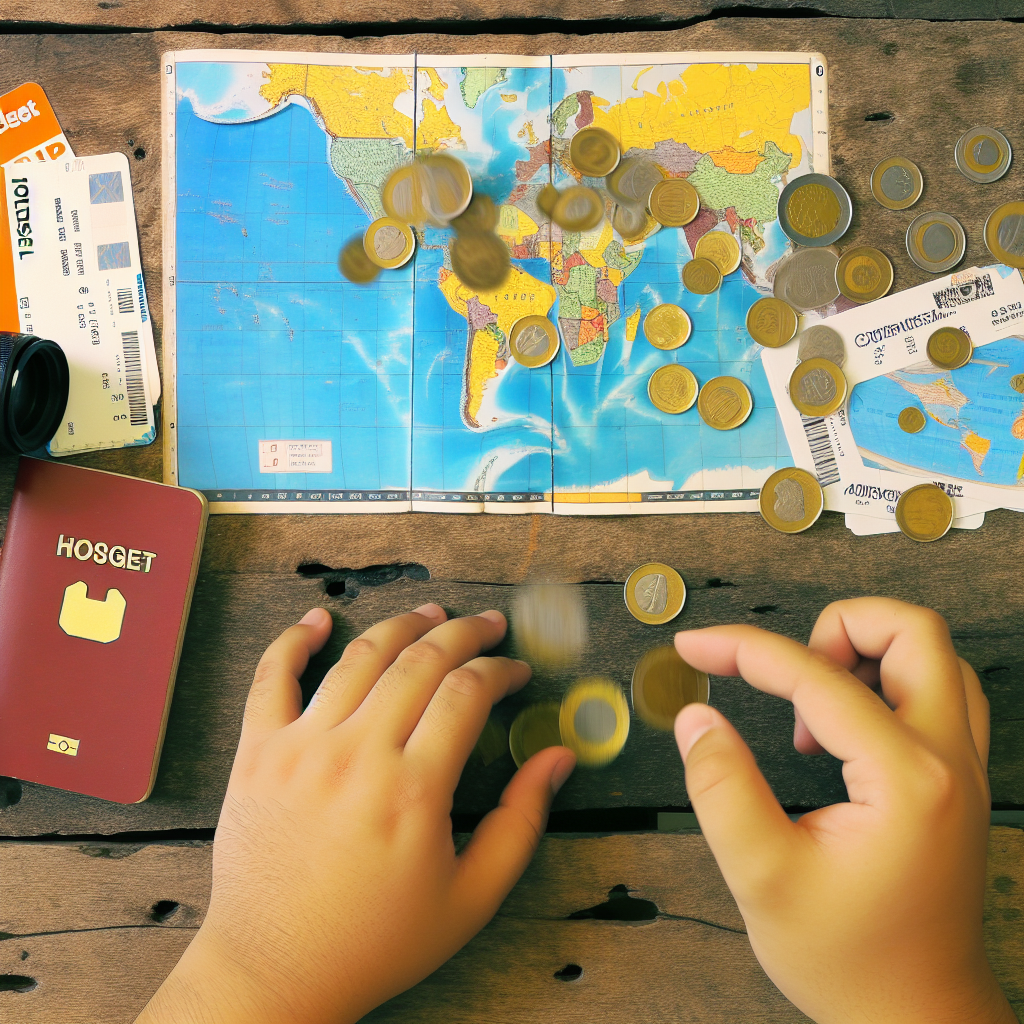-
Table of Contents
“Money Management 101: Secure Your Finances, Travel with Confidence.”
Creating a Budget: A Step-by-Step Guide to Manage Your Travel Expenses
Traveling can be an exciting and enriching experience, but it can also be quite expensive. From flights and accommodations to meals and activities, the costs can quickly add up. That’s why it’s crucial to have a solid budget in place to ensure financial security during your travels. In this article, we will provide you with a step-by-step guide to creating a budget that will help you manage your travel expenses effectively.
The first step in creating a budget for your travels is to determine your total available funds. This includes any savings you have set aside specifically for your trip, as well as any additional income you may have coming in during your travels. By knowing how much money you have to work with, you can set realistic expectations for your trip and avoid overspending.
Once you have determined your total available funds, the next step is to estimate your expenses. Start by making a list of all the major expenses you will incur during your trip, such as flights, accommodations, transportation, meals, and activities. Research the average costs for each item on your list to get a rough estimate. It’s always a good idea to overestimate your expenses to account for any unexpected costs that may arise.
After estimating your expenses, it’s time to prioritize them. Decide which expenses are essential and which ones you can live without. This will help you allocate your funds more effectively. For example, if you’re on a tight budget, you may choose to stay in budget accommodations and eat at local restaurants instead of splurging on luxury hotels and fine dining.
Once you have prioritized your expenses, it’s time to allocate your funds accordingly. Divide your total available funds among the different categories based on their importance. Be sure to leave some room for flexibility in case you need to adjust your budget during your travels. It’s always better to have a little extra money set aside than to find yourself in a financial bind.
Now that you have allocated your funds, it’s time to track your expenses. Keep a record of every penny you spend during your travels. This will help you stay on top of your budget and identify any areas where you may be overspending. There are many budgeting apps and tools available that can help you track your expenses easily and conveniently.
Throughout your travels, it’s important to review and adjust your budget as needed. Keep an eye on your spending and make adjustments if you find that you’re consistently overspending in certain areas. Remember, the goal is to stay within your budget and ensure financial security during your travels.
In conclusion, creating a budget is an essential step in managing your travel expenses effectively. By determining your total available funds, estimating your expenses, prioritizing them, allocating your funds, and tracking your expenses, you can ensure financial security during your travels. Remember to review and adjust your budget as needed to stay on track. With proper money management, you can enjoy your travels without worrying about your finances.
Smart Saving Strategies: How to Build a Travel Fund and Avoid Debt
Traveling is an exciting and enriching experience that allows us to explore new places, immerse ourselves in different cultures, and create lasting memories. However, it can also be quite expensive, and without proper money management, it’s easy to find yourself in debt. In this article, we will discuss some smart saving strategies that will help you build a travel fund and ensure financial security during your travels.
The first step in smart money management is to create a budget. Start by determining how much money you can realistically set aside for your travel fund each month. Take into account your income, expenses, and any other financial obligations you may have. By setting a specific amount aside each month, you will gradually build up your travel fund without putting a strain on your finances.
To maximize your savings, it’s important to cut back on unnecessary expenses. Take a close look at your spending habits and identify areas where you can make adjustments. For example, consider reducing your dining out expenses by cooking more meals at home or bringing lunch to work. Additionally, try to limit your entertainment expenses by finding free or low-cost activities to enjoy.
Another effective strategy for saving money is to automate your savings. Set up an automatic transfer from your checking account to your travel fund each month. By doing this, you won’t have to rely on willpower alone to save money. It will become a habit, and you’ll be less likely to spend the money that was intended for your travel fund.
In addition to saving money, it’s also important to avoid accumulating debt while planning for your travels. One way to do this is by paying off any existing debts before you start saving for your trip. High-interest credit card debt can quickly eat into your travel fund, so it’s crucial to prioritize paying it off. Consider creating a debt repayment plan and stick to it until you are debt-free.
If you find it challenging to save money on your own, consider enlisting the help of a financial advisor. A professional can provide guidance and help you create a personalized savings plan based on your financial situation and goals. They can also offer valuable advice on investment opportunities that can help grow your travel fund.
In addition to these strategies, it’s important to be mindful of your spending habits while traveling. Set a daily budget for your expenses and stick to it. Avoid unnecessary splurges and prioritize experiences that truly matter to you. By being mindful of your spending, you can make the most of your travel fund and avoid financial stress during your trip.
In conclusion, smart saving strategies are essential for building a travel fund and ensuring financial security during your travels. By creating a budget, cutting back on unnecessary expenses, automating your savings, and avoiding debt, you can gradually build up your travel fund without compromising your financial stability. Remember to be mindful of your spending habits while traveling and prioritize experiences that align with your budget. With proper money management, you can embark on your travels with peace of mind, knowing that you have taken the necessary steps to ensure financial security.
Investing in Your Future: Making the Most of Your Travel Budget for Long-Term Financial Security
Traveling is an exciting and enriching experience that allows us to explore new cultures, meet interesting people, and create lasting memories. However, it’s important to remember that financial security should always be a priority, even when we’re on the road. By investing in your future and making the most of your travel budget, you can ensure long-term financial security while still enjoying your adventures.
One of the first steps in money management during your travels is creating a budget. Before embarking on your journey, take the time to assess your financial situation and determine how much you can afford to spend. Consider your income, expenses, and any savings or investments you may have. This will give you a clear picture of your financial resources and help you set realistic goals for your trip.
Once you have a budget in place, it’s important to stick to it. This means being mindful of your spending and making conscious choices about where and how you allocate your funds. Avoid unnecessary expenses and prioritize experiences that align with your travel goals. By being disciplined with your spending, you can make the most of your travel budget and ensure that your money lasts throughout your trip.
Another key aspect of money management during your travels is finding ways to save money. Look for deals and discounts on flights, accommodations, and activities. Consider staying in budget-friendly accommodations such as hostels or guesthouses, or even exploring alternative options like house-sitting or couchsurfing. Additionally, be mindful of your daily expenses such as food and transportation. Opt for local street food or cook your own meals instead of dining out at expensive restaurants. Use public transportation or walk whenever possible to save on transportation costs. These small savings can add up over time and help you stretch your travel budget further.
Investing in your future while traveling is not just about saving money, but also about making smart financial decisions. Consider investing in experiences that have long-term benefits, such as learning a new language or acquiring new skills. These investments can enhance your resume and increase your earning potential in the future. Additionally, consider investing in your health and well-being by purchasing travel insurance or setting aside funds for medical emergencies. By taking these precautions, you can protect yourself financially and ensure peace of mind during your travels.
Lastly, it’s important to remember that financial security is not just about saving money, but also about managing your finances effectively. Keep track of your expenses and regularly review your budget to ensure that you’re staying on track. Consider using financial management tools or apps to help you stay organized and monitor your spending. Additionally, be mindful of any financial obligations you may have back home, such as bills or loan payments. Set up automatic payments or make arrangements to ensure that your financial responsibilities are taken care of while you’re away.
In conclusion, money management is a crucial aspect of ensuring financial security during your travels. By creating a budget, sticking to it, and finding ways to save money, you can make the most of your travel budget and ensure that your money lasts throughout your trip. Additionally, investing in experiences that have long-term benefits and managing your finances effectively will contribute to your long-term financial security. So, go ahead and embark on your adventures with confidence, knowing that you’re taking steps to secure your financial future.






